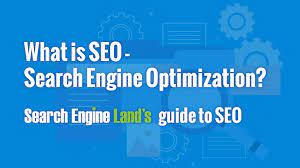5 Effective Strategies to Improve Your Website SEO
Search Engine Optimization (SEO) is crucial for driving organic traffic to your website. By implementing the right strategies, you can improve your website’s visibility in search engine results and attract more visitors. Here are five effective ways to enhance your website’s SEO:
- Keyword Research: Conduct thorough keyword research to identify relevant keywords and phrases that your target audience is searching for. Use these keywords strategically in your website content, meta tags, and headings.
- Optimize On-Page Elements: Ensure that your website’s on-page elements, such as title tags, meta descriptions, and image alt text, are optimized with relevant keywords. This helps search engines understand the content of your pages.
- Create High-Quality Content: Publish high-quality, engaging content that provides value to your audience. Regularly update your website with fresh content that is informative, relevant, and well-structured.
- Improve Website Speed: Optimize your website’s loading speed to enhance user experience and SEO performance. Compress images, minify CSS and JavaScript files, and leverage browser caching to improve page load times.
- Build Quality Backlinks: Earn backlinks from reputable websites in your industry to boost your website’s authority and credibility. Focus on acquiring natural backlinks through guest blogging, influencer collaborations, and social media engagement.
By implementing these strategies consistently and monitoring your website’s performance using analytics tools, you can improve your website’s SEO rankings and drive more organic traffic. Remember that SEO is an ongoing process that requires dedication and effort, but the long-term benefits are well worth it.
9 Essential Tips to Boost Your Website’s SEO Performance
- Create high-quality, relevant content for your website.
- Use relevant keywords strategically throughout your content.
- Optimize your website’s meta tags, including title tags and meta descriptions.
- Improve website loading speed for better user experience and SEO ranking.
- Ensure your website is mobile-friendly and responsive.
- Build high-quality backlinks from reputable websites to improve SEO authority.
- Optimize images on your website with descriptive filenames and alt text.
- Regularly update and maintain your website to keep content fresh and relevant.
- Monitor performance using tools like Google Analytics to track SEO progress.
Create high-quality, relevant content for your website.
Creating high-quality, relevant content for your website is essential for improving SEO. Content that is informative, engaging, and tailored to the needs of your target audience not only helps to attract and retain visitors but also signals to search engines that your site is a valuable resource. By consistently publishing fresh and valuable content, you can enhance your website’s visibility in search engine results and establish authority in your industry. Remember that content is king in the world of SEO, so investing time and effort into creating compelling content can have a significant impact on your website’s performance.
Use relevant keywords strategically throughout your content.
Using relevant keywords strategically throughout your content is a crucial tip to improve website SEO. By incorporating these keywords naturally into your website content, meta tags, and headings, you can enhance your visibility in search engine results and attract the right audience to your site. It is essential to conduct thorough keyword research to identify the terms and phrases that resonate with your target audience and align with your overall content strategy. By optimizing your content with these relevant keywords, you can improve your website’s ranking and increase organic traffic over time.
Optimize your website’s meta tags, including title tags and meta descriptions.
Optimizing your website’s meta tags, such as title tags and meta descriptions, is a crucial step in improving your website’s SEO. Title tags provide a concise and descriptive summary of each webpage’s content, helping search engines understand the relevance of your pages to users’ search queries. Meta descriptions, on the other hand, offer a brief overview of what users can expect when they click on your link in search results, influencing their decision to visit your site. By crafting compelling and keyword-rich meta tags, you can enhance your website’s visibility in search engine results and attract more organic traffic.
Improve website loading speed for better user experience and SEO ranking.
Improving your website loading speed is a crucial aspect of enhancing both user experience and SEO ranking. A faster-loading website not only provides visitors with a seamless browsing experience but also signals to search engines that your site is well-optimized and user-friendly. By optimizing your website’s loading speed through techniques such as image compression, minifying code, and leveraging browser caching, you can significantly improve user engagement, reduce bounce rates, and ultimately boost your SEO performance. Prioritizing website speed not only benefits your visitors but also plays a key role in improving your search engine rankings, making it a valuable investment for the overall success of your online presence.
Ensure your website is mobile-friendly and responsive.
Ensuring that your website is mobile-friendly and responsive is crucial for improving SEO. With the increasing use of mobile devices to access the internet, search engines prioritize mobile-optimized websites in their rankings. A mobile-friendly website not only provides a better user experience but also signals to search engines that your site is accessible and relevant to a wide range of users. By implementing responsive design principles and optimizing your website for different screen sizes, you can enhance usability, reduce bounce rates, and ultimately boost your SEO performance.
Build high-quality backlinks from reputable websites to improve SEO authority.
Building high-quality backlinks from reputable websites is a crucial strategy to enhance your website’s SEO authority. By earning backlinks from trustworthy and relevant sources, you can boost your website’s credibility in the eyes of search engines. These backlinks act as endorsements of your content and can significantly impact your search engine rankings. Focus on cultivating relationships with authoritative websites in your industry and strive to earn natural backlinks through valuable content and genuine engagement. By consistently building quality backlinks, you can strengthen your website’s authority and improve its overall SEO performance.
Optimize images on your website with descriptive filenames and alt text.
Optimizing images on your website with descriptive filenames and alt text is a crucial aspect of improving SEO. By using relevant keywords in the filenames and alt text of your images, you not only enhance the accessibility of your website for visually impaired users but also provide search engines with valuable information about the content of your images. This practice can help improve your website’s overall visibility in search engine results and drive more organic traffic to your site.
Regularly update and maintain your website to keep content fresh and relevant.
Regularly updating and maintaining your website is a crucial aspect of improving SEO. By keeping your content fresh and relevant, you signal to search engines that your website is active and engaging for visitors. This practice not only helps attract new traffic but also encourages return visits from existing users. By consistently adding new content, updating information, and optimizing for relevant keywords, you can enhance your website’s visibility in search engine results and ultimately improve your SEO performance.
Monitor performance using tools like Google Analytics to track SEO progress.
Monitoring your website’s SEO performance is essential for tracking progress and identifying areas for improvement. Utilizing tools like Google Analytics allows you to analyze key metrics such as organic traffic, keyword rankings, and user engagement. By regularly monitoring these metrics, you can gain valuable insights into the effectiveness of your SEO strategies and make data-driven decisions to optimize your website for better search engine visibility. Stay informed about your website’s performance with analytics tools to continuously refine your SEO efforts and achieve long-term success online.



